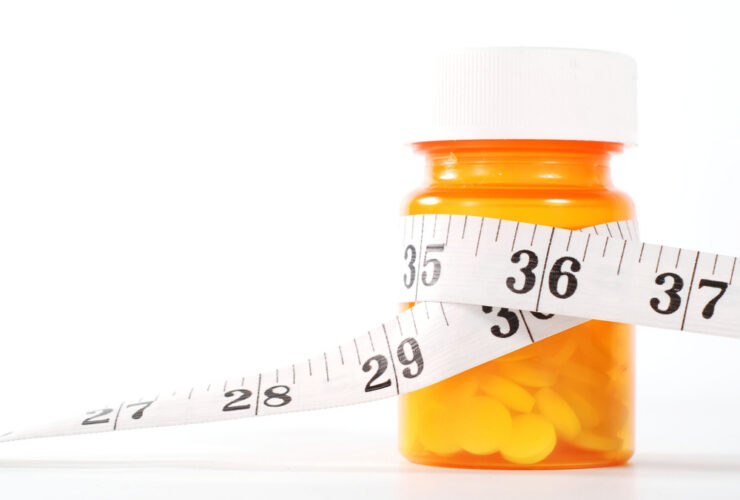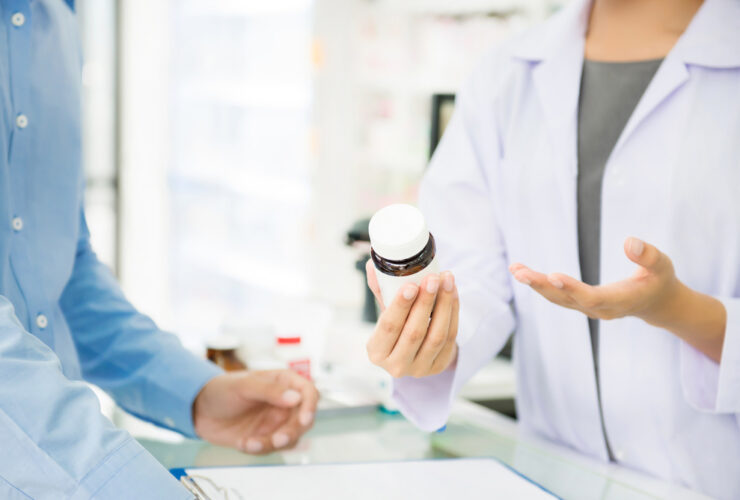Stress-tree travel takes organization and planning. Stress-free travel with prescription medications takes a firm knowledge of laws both here and abroad. Learn four ways that your compounding pharmacist can assist you with travel regulations if you are traveling out of the country.
1. Your Compounding Pharmacist Provides Compliant, Sturdy Labels
To travel legally with controlled medications, you need proof that you’re the patient for whom the medications are intended. You need clear labels on all packaging that show your name and your doctor’s prescription.
Screening is simpler when you keep pills and other prescribed treatments in original packaging with the original labels. For short, light travels, standard paper labeling is fine on pill and medication containers. However, if you go backcountry camping or to the beach, labels can easily be ripped off or obscured by water damage.
If you intend to travel for an extended period or if you’ll encounter rough conditions on your journey, ask your pharmacist to supply you with heavy-duty labels for all of your bottles and tubes. Your pharmacist can place clear tape over paper labels or use labels with protective film to ensure that the label’s words are legible even after exposure to water or dirt.
Remember that you also need clear labels for medically necessary travel accessories, including:
- Nebulizer
- IV bag
- IV or other pump
- Freezer packs
- Gel packs
- Syringe packages
Your compounding pharmacist can tell you the precise medical terms for items if you aren’t sure what to put on the various medical-equipment labels. Your name must also be included on the labels to be in compliance with some agencies’ rules.
2. Your Compounding Pharmacist Provides Documentation of Drugs
Your compounding pharmacist also provides you with the paper documentation you’ll need to enter some countries. For example, if you leave the U.S. and then return to the U.S., federal customs officers will want to see a doctor’s note or a valid prescription to approve any medications you bring back home.
Other countries have their own rules about documentation for prescription drugs. Be prepared for a document screening wherever you are by having your compounding pharmacist make paper copies of all of your prescriptions for you.
Your compounding pharmacist can also create a helpful separate document listing your ailment(s) and your prescriptions, including:
- Active ingredients
- Dosages
- Frequency of use
A comprehensive medication list is helpful for border screenings and in case you have any medical emergencies. Lifesaving emergency treatment while traveling won’t be delayed if healthcare workers can see right away which drugs you’re taking.
Keep all of your medication-related documentation with your passport and other travel necessities. You’ll avoid any misunderstandings or problems during your visits to foreign countries.
Your physician can also complete a comprehensive drug list for you. Both physicians and compounding pharmacists may charge a small fee for travel documents and copies of prescriptions, but the resulting peace-of-mind is worth it.
3. Your Compounding Pharmacist Provides Sturdy Containers
Before you board a passenger plane in the U.S., you must notify the Transportation Security Administration (TSA) agents that you’re carrying prescription liquids, creams, and medications. All pills and solid medications are screened. All creams and liquids are inspected and/or screened.
Prescription liquids, creams, and gels are not bound to the 3.4-ounce limit imposed on non-prescription items. You can — in theory — carry larger amounts of creams and liquids for long-term travel.
In some cases, suspect liquids will be confiscated and tossed even when you have a prescription, but this is a rare occurrence. Most of the time, you’ll pass through fine with larger liquid and cream containers.
Determine the amount of medicated liquids and creams you need for the duration of your journey. Have your compounding pharmacist provide leak-proof containers that hold your required amounts.
TSA agents are more efficient when your liquids and creams are in containers that don’t leak. You’ll appreciate cream and liquid containers that carry enough treatment to meet your needs while you travel. However, be aware that you shouldn’t travel with more than a 90-day supply of any one medication.
Your compounding pharmacist can provide you with child-proof containers when you’ll be traveling with kids. Other protective drug containers are available through your compounding pharmacist for travel in extremely hot, cold, dry, or humid conditions.
4. Your Compounding Pharmacist Can Offer Substitutions
Some prescription drugs are illegal in European and Asian countries, while the same exact drugs are perfectly legal in the U.S. Likewise, certain prescription drugs are allowed in foreign countries but can’t be prescribed in America.
Pharmaceutical products can also have the same name in two different countries yet be completely different substances for completely unrelated illnesses. An over-the-counter medication in one country can require a doctor’s prescription in another country.
Different nations also have diverse rules about how drugs can be used. If your prescribed drug is used to treat an unapproved condition in a foreign country, your drugs are considered illegal. This is true even when your condition is approved for the drug treatment in your home country.
Before you travel to a foreign country, research the legality of your prescription medications. If there are rules against any of your medicines, ask your compounding pharmacist and doctor to recommend appropriate substitutions.
Contact Potter’s House Apothecary today to fill your travel prescriptions for all of your summer journeys. We serve patients in Peoria, Arizona, and the surrounding regions.



